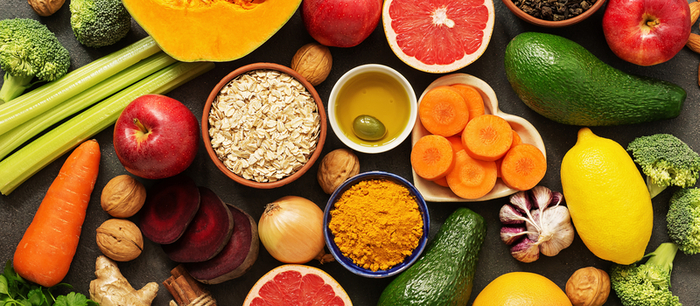- Calls to this hotline are currently being directed to Within Health or Eating Disorder Solutions
- Representatives are standing by 24/7 to help answer your questions
- All calls are confidential and HIPAA compliant
- There is no obligation or cost to call
- Eating Disorder Hope does not receive any commissions or fees dependent upon which provider you select
- Additional treatment providers are located on our directory or samhsa.gov
The Dangers of Cleansing
Cleanses or detoxes are suggested to remove toxins from the body to promote weight loss or health [3].
For those who are predisposed to having an eating disorder, they may be negatively influenced by the promotion of a fad diet such as a cleanse. This negative influence may plant a seed that can grow into an eating disorder or disordered eating patterns.
The dangers of any fad diet lurk beneath the surface of its appeal or what it is trying to sell. Cleansing for instance is marketed as a quick fix, leading to rapid weight loss.
So, is s a cleanse truly a quick fix or is it more harmful than helpful to physical and mental health long-term?
What is a Cleanse?
A cleanse or a detoxification are fad diets that maybe prompted by advertisement from the uninformed or they can be medical recommendations from trained medical professionals.
Cleanses that may be promoted or recommended include [3]:
- Fasting
- Drinking only juices or other beverages
- Eating only certain foods
- Taking dietary supplements, teas, or other promoted products
- Herbs
- Cleansing the colon (lower intestinal tract) for a diagnostic and medical procedures (colonoscopy, bowel resection, etc.)
- Enemas
- Laxatives
It’s important to know that many cleanses or detoxes maybe unsafe or falsely advertised [3]. Any diet that is promising a quick fix or unrealistic expectations should be a red flag. If the thought, “this is too good to be true,” arises, it probably is.
The False Truths of Cleanses
What is truly happening in the body during a so-called cleanse or detox? Cleanses or detoxes sell false promises of quick and lasting weight loss.
Studies have shown that initial rapid weight loss does occur, but only due to the restriction of calories [3]. After a cleanse is complete people usually gain the weight back and then some.
The Potential Harms of Cleanses
Restriction along with drinking high quantities of water, teas, and the incorporation of laxatives can lead to dangerous electrolyte imbalances. Laxative use can also lead to dehydration.
Even in medically necessary colon cleanses, those with a history of gastrointestinal diseases or surgeries, hemorrhoids, kidney disease, and/or heart disease can have negative to severe side effects [3].
In addition, the lack of nourishment or adequate caloric intake may lead to inadequate vitamin and mineral intake. Long-term this may cause vitamin and mineral deficiency. Other side effects that may occur from restriction and dehydration include weakness, fatigue, headache, brain fog, fainting, and more.
The Body Cleanses Itself (Don’t we have an organ for that?)
The human body has two organs that support filtering out toxins. These organs are the kidneys and the liver.
These filtration processes are happening every day. A couple days to a week of a cleanse will not promote long term healing or health.
To support the body, in particular the liver and kidneys, in optimal functioning, the goal should not be to take over the liver or kidney’s job, but to support their functioning. This means exploring what might be missing from one’s diet and what could be added rather than taken away.
The Harm of Clean Eating Diets
It is important to understand the impact harmful dieting strategies can have on increasing the risk of eating disorders and disordered eating patterns [1].
Today social media has more and more influence over choice. Those using social media are often seeking guidance and may be desperate for nutrition or health information to change their body.
Unfortunately, majority of nutrition information on social media can have a serious impact on mental and physical health [2].
A pro and con of social media is that all people have equal voice. This means someone who is unqualified may be providing diet and exercise recommendations [2]. On top of this, celebrities are selling and promoting products and the promise that anyone can look like them if they only buy this or try that.
Sadly, dieting has become a common behavior, especially among adolescents. Research suggests that following a diet and even specialty diets (vegetarian, pescatarian, vegan, paleo, gluten-free, etc.) may lead to a high risk of having an eating disorder [1].
The Why Behind Choosing a Cleanse?
Fad diets seem to come one after another, in search for the next best thing as a solution. Choosing a diet or a cleanse may be the next choice in a search for something else. So, is a cleanse truly about cleaning or healing the body or is there more of a desire to restricting or manipulating the body?
Before choosing the next diet, cleanse, or detox, try asking a couple questions first:
- Why was this recommended or sought out?
- Am I looking for something a cleanse cannot provide?
- Rather than taking food away would it help to add something? Is anything in my diet missing (fruits, vegetables, whole grains, variety of fats, variety of proteins, etc.)?
A diet cannot promise health or happiness. To support the body in physical and mental health, all aspects of body and mind should be evaluated.
A staring place in to explore potential diet changes and physical and metal healing with trained medical professionals such as dietitians and therapists.
Resources:
[1]Ambwani, S., Shippe, M., Gao, Z., & Austin, S. B. (2019). Is #cleaneating a healthy or harmful dietary strategy? Perceptions of clean eating and associations with disordered eating among young adults. Journal of Eating Disorders, 7(1). https://doi.org/10.1186/s40337-019-0246-2 [2] Archibald-Durham, L. (2021). The Insta-Diet. Current Allergy & Clinical Immunology, 34(1), 30–32. [3] “Detoxes” and “Cleanses”: What You Need To Know. (2019). NCCIH. https://www.nccih.nih.gov/health/detoxes-and-cleanses-what-you-need-to-knowAuthor: Raylene Hungate, RDN, LD/N
Page Last Reviewed on March 8, 2022, and Updated By: Jacquelyn Ekern, MS, LPC


